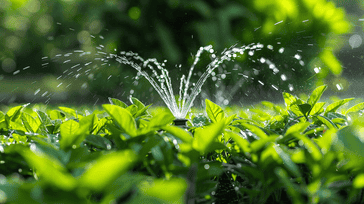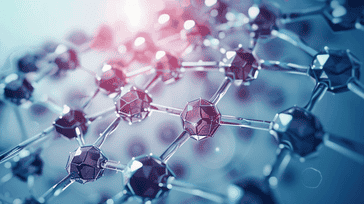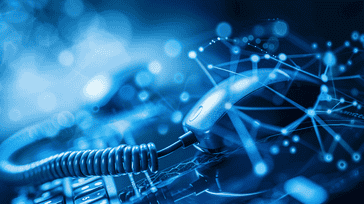
Welcome to our article on smart irrigation systems and their role in revolutionizing water conservation in agriculture. In today's rapidly changing world, technology is paving the way for sustainable farming practices and agricultural innovation. Precision agriculture, also known as agtech or digital agriculture, is at the forefront of this transformation. Smart farming is not just a buzzword; it is a solution that has the potential to take agribusiness to new heights.
In this article, we will explore the importance of water conservation in agriculture and the challenges faced by farmers in managing water resources efficiently. We will delve into the concept of smart irrigation systems, their components, and how they leverage technology to optimize water usage. Moreover, we will discuss the various benefits of implementing smart irrigation systems, such as improved water efficiency, increased crop yield, and sustainable farming practices.
Furthermore, we will look at the practical aspects of implementing smart irrigation systems, including the use of soil moisture sensors, weather-based controllers, and remote monitoring. Real-life case studies will demonstrate how these systems have transformed water management techniques and enhanced the profitability of farmers.
While exploring the potential of smart farming, we will also address the challenges faced during implementation and discuss future trends in agricultural innovation. The integration of artificial intelligence and machine learning in smart irrigation systems is set to revolutionize the industry in the coming years.
In conclusion, we will summarize the key points discussed throughout the article and highlight the significance of smart irrigation systems in achieving water conservation goals in agriculture. The possibilities presented by this combination of agriculture and technology are endless. Join us as we dive into the fascinating world of smart farming and its impact on the future of sustainable agriculture.
Key Takeaways:
- Smart irrigation systems revolutionize water conservation in agriculture.
- Precision agriculture and digital technologies drive sustainable farming practices.
- Implementing smart irrigation systems improves water efficiency and crop yield.
- Real-life case studies highlight successful applications of smart irrigation systems.
- The integration of AI and machine learning shapes the future of smart farming.
The Importance of Water Conservation in Agriculture
Water conservation plays a vital role in the sustainability of agriculture and the efficient management of water resources is crucial for farmers. With increasing concerns about water scarcity and environmental impact, it is more important than ever to adopt sustainable farming practices that prioritize water conservation.
Agriculture is a significant consumer of water, accounting for around 70% of global freshwater withdrawals. As the global population continues to grow and irrigation demands increase, water scarcity becomes a pressing issue that needs to be addressed.
By implementing water conservation strategies, farmers can reduce water waste, preserve water supplies, and promote the long-term health of ecosystems. These strategies include efficient irrigation techniques, soil management practices, and the use of technology-driven solutions like smart irrigation systems.
"The greatest threat to our planet is the belief that someone else will save it." - Robert Swan
The Challenges
While the importance of water conservation in agriculture is evident, there are several challenges that farmers face in managing water resources effectively:
- Increasing water demand: Growing populations and expanding agricultural activities lead to higher water demand, putting more pressure on available water resources.
- Climate change: Changing weather patterns and extreme weather events result in unpredictable rainfall patterns, making it difficult to plan and manage irrigation effectively.
- Aging infrastructure: Outdated irrigation infrastructure can lead to water leakage and inefficiencies in water distribution.
- Financial constraints: Implementing water conservation measures often requires significant financial investments, which may be a barrier for small-scale farmers.
Despite these challenges, adopting sustainable farming practices that prioritize water conservation is essential for the long-term viability of agriculture.
Next, we will delve into the world of smart irrigation systems, which are revolutionizing water management in agriculture and providing innovative solutions to address these challenges.
Understanding Smart Irrigation Systems

Smart irrigation systems are at the forefront of technology-driven advancements in precision agriculture. These systems utilize innovative technology to optimize water usage in farming, ensuring sustainable and efficient practices. By combining real-time data, automation, and remote monitoring, smart irrigation systems revolutionize traditional farming methods and contribute to the development of a more environmentally conscious agricultural industry.
At the core of smart irrigation systems is the concept of precision agriculture, which involves utilizing data-driven insights to make informed decisions about irrigation schedules, water distribution, and crop health management. By leveraging advanced sensors, weather forecasts, and soil moisture monitoring techniques, farmers can accurately assess the water requirements of their crops and optimize irrigation processes accordingly.
One of the key components of smart irrigation systems is the integration of technology into traditional irrigation infrastructure. This includes automated valves, digital controllers, and cloud-based platforms that enable remote monitoring and control of irrigation operations. By allowing farmers to access and manage their irrigation systems through smartphones or computers, these technologies offer convenience, flexibility, and real-time insights for effective decision-making.
Additionally, smart irrigation systems promote water conservation by minimizing water waste and ensuring efficient water distribution. By taking into account various factors such as weather conditions, soil moisture levels, and crop type, these systems adjust irrigation schedules and water application rates accordingly, optimizing water usage while maintaining crop health. This not only reduces the strain on water resources but also improves overall farm productivity and profitability.
"Smart irrigation systems leverage technology and data-driven insights to optimize water usage in agriculture, contributing to the development of a more sustainable and efficient farming industry."
Benefits of Smart Irrigation Systems:
- Improved water efficiency and conservation
- Optimized irrigation schedules based on real-time data
- Reduction in water waste and runoff
- Enhanced crop yield and quality
- Increased farm productivity and profitability
- Promotion of sustainable farming practices
In summary, smart irrigation systems leverage technology and data-driven insights to optimize water usage, improve farm productivity, and promote sustainable farming practices. By integrating innovative solutions into traditional irrigation methods, these systems represent a significant advancement in precision agriculture, ensuring the efficient use of water resources while maintaining crop health and maximizing yields.
| Benefits | Description |
|---|---|
| Improved water efficiency and conservation | Smart irrigation systems optimize water usage, reducing waste and conserving water resources. |
| Optimized irrigation schedules based on real-time data | These systems utilize real-time data to adjust irrigation schedules, ensuring precise water application. |
| Reduction in water waste and runoff | Smart irrigation systems minimize water waste and prevent unnecessary runoff. |
| Enhanced crop yield and quality | By providing crops with the right amount of water at the right time, these systems improve yield and crop quality. |
| Increased farm productivity and profitability | Optimized irrigation techniques contribute to increased productivity and profitability for farmers. |
| Promotion of sustainable farming practices | Smart irrigation systems support sustainable farming by conserving water and minimizing environmental impact. |
Benefits of Smart Irrigation Systems
Smart irrigation systems offer numerous benefits to the agriculture industry, fostering sustainable farming practices while maximizing productivity. These advanced systems leverage cutting-edge technology to optimize water usage, reduce wastage, and enhance crop yield. The integration of agtech innovations has propelled the efficiency and effectiveness of smart irrigation systems, revolutionizing the way we approach agriculture.
Improved Water Efficiency
One of the primary advantages of smart irrigation systems is their ability to improve water efficiency in agricultural operations. These systems utilize real-time data from sensors, weather forecasts, and soil moisture levels to determine the specific irrigation needs of crops. By delivering precise amounts of water at the right time and in the right location, smart irrigation systems minimize water loss due to evaporation, runoff, and over-irrigation.
Water Waste Reduction
By eliminating water waste in the form of unnecessary irrigation, smart irrigation systems contribute to water conservation efforts. These systems prevent overwatering, which not only saves water but also helps to maintain the optimal moisture levels in the soil. Additionally, smart irrigation systems can detect leaks and pipe breaks, allowing for immediate repairs and further reducing water waste.
Increase in Crop Yield
The precise and efficient delivery of water enabled by smart irrigation systems directly impacts crop yield. By providing crops with the ideal amount of water they require, these systems promote healthy plant growth and development. The optimization of water usage ensures that crops receive the necessary hydration without the risk of overwatering or under-watering, thereby maximizing their yield potential.
Contribution to Sustainable Farming Practices
Smart irrigation systems play a critical role in enabling sustainable farming practices. By conserving water resources, these systems help to mitigate the environmental impact of agricultural activities. The efficient use of water also reduces the strain on local water supplies, contributing to the long-term sustainability of agricultural operations. Moreover, by preserving water and improving crop health, smart irrigation systems support the production of high-quality, sustainable food.
| Benefits of Smart Irrigation Systems | Description |
|---|---|
| Improved Water Efficiency | Utilization of real-time data to deliver precise amounts of water, reducing water loss due to evaporation, runoff, and over-irrigation. |
| Water Waste Reduction | Prevention of overwatering, detection of leaks and pipe breaks, leading to efficient water usage and reduced water waste. |
| Increase in Crop Yield | Optimization of water delivery promotes healthy plant growth, maximizing crop yield potential. |
| Contribution to Sustainable Farming Practices | Conservation of water resources, reduced strain on local water supplies, and support for the production of high-quality, sustainable food. |
In summary, smart irrigation systems offer a range of benefits to the agriculture industry. By improving water efficiency, reducing water waste, increasing crop yield, and contributing to sustainable farming practices, these systems have the potential to revolutionize agriculture and ensure a more environmentally friendly and economically viable future.
Implementation of Smart Irrigation Systems in Agriculture

In order to successfully implement smart irrigation systems in agriculture, it is important to understand the components and features that make these systems efficient and effective. One of the key elements of smart irrigation systems is the use of soil moisture sensors. These sensors provide real-time data on the moisture levels in the soil, allowing farmers to accurately determine when and how much water to irrigate. By having this precise information, farmers can avoid over-irrigation, which leads to water waste and potential crop damage.
Another important component of smart irrigation systems is the use of weather-based controllers. These controllers take into account factors such as temperature, humidity, and rainfall forecasts to automatically adjust the irrigation schedule. This helps farmers optimize water usage by irrigating only when necessary, based on the specific needs of the crops and the prevailing weather conditions.
Remote monitoring is another feature that enhances the implementation of smart irrigation systems. With remote monitoring capabilities, farmers can keep track of their irrigation systems and receive real-time data and notifications on their smartphones or other devices. This allows farmers to remotely control and manage their irrigation systems, making adjustments as needed without physically being present in the field. Remote monitoring provides convenience and flexibility, enabling farmers to efficiently manage their irrigation operations.
Implementing smart irrigation systems in agriculture requires a combination of cutting-edge technology and careful monitoring. By utilizing soil moisture sensors, weather-based controllers, and remote monitoring, farmers can significantly improve water efficiency and optimize crop yields.
Digital agriculture plays a crucial role in facilitating the adoption of smart farming practices. With the integration of digital technologies, farmers can access advanced analytics and data-driven insights that enable them to make informed decisions regarding irrigation. Precision agriculture, which encompasses the use of digital tools and technologies, allows farmers to optimize crop production while minimizing resource use. Through digital platforms and mobile applications, farmers can access real-time information, monitor crop health, and remotely control their irrigation systems, all of which contribute to the successful implementation of smart irrigation systems in agriculture.
| Components | Features |
|---|---|
| Soil moisture sensors | - Provide real-time data on soil moisture levels - Enable precise irrigation scheduling |
| Weather-based controllers | - Take into account weather conditions for irrigation scheduling - Optimize water usage |
| Remote monitoring | - Allows farmers to remotely control and manage irrigation systems - Provides real-time data and notifications |
Case Studies: Successful Applications of Smart Irrigation Systems
This section presents real-life case studies that showcase the successful application of smart irrigation systems in different farming scenarios. These case studies serve as powerful examples of how smart irrigation systems have revolutionized water management techniques, improved crop quality, and increased farmers' profitability.
One such case study is the implementation of smart irrigation systems on the Smith Family Farm. By integrating soil moisture sensors and weather-based controllers into their irrigation infrastructure, the Smith family has significantly reduced water wastage while maintaining optimal soil moisture levels. This not only conserves water resources but also improves crop health and minimizes the risk of overwatering.
Another notable case study is the adoption of smart irrigation systems by Green Acres Vineyard. Utilizing intelligent drip irrigation technology, the vineyard has achieved precise water delivery to each grapevine, resulting in healthier vines and higher grape yields. This has not only increased the vineyard's productivity but also enhanced the quality of their wine, leading to greater success in the competitive wine market.
"We have witnessed a transformative impact on our farm since implementing smart irrigation systems. Our water usage has reduced significantly, and the overall health of our crops has improved. This has not only benefited our bottom line but also aligned with our commitment to sustainable farming practices." - John Smith, Farmer at the Smith Family Farm
Furthermore, the case study of Sunny Fields Organic Farm demonstrates how smart irrigation systems have paved the way for agribusiness growth. By optimizing water usage with precision sprinklers and remote monitoring, Sunny Fields has expanded its organic crop production and established partnerships with large-scale retailers, leading to increased revenue and market opportunities.
Key Findings from Case Studies
| Case Study | Outcomes |
|---|---|
| Smith Family Farm | - Reduced water wastage - Improved crop health - Decreased risk of overwatering |
| Green Acres Vineyard | - Precise water delivery to grapevines - Healthier vines - Increased grape yields |
| Sunny Fields Organic Farm | - Optimized water usage with precision sprinklers - Expanded organic crop production - Established partnerships with retailers |
These case studies highlight the tangible benefits and positive impact of smart irrigation systems on agricultural innovation and agribusiness. By adopting these advanced technologies, farmers can maximize their yields, minimize resource usage, and contribute to the sustainable future of farming.
Overcoming Challenges and Future Trends in Smart Irrigation

Implementing smart irrigation systems in agriculture comes with its fair share of challenges. One major obstacle is the upfront cost of installing the necessary technology and infrastructure. Farmers may be hesitant to invest in these systems due to budget constraints or lack of awareness about their long-term benefits.
Another challenge is the complexity of integrating smart irrigation systems into existing farming practices. Farmers need to understand how to properly calibrate and operate the technology to ensure optimal water usage and crop yield. Training and education programs are crucial in addressing this issue and promoting widespread adoption.
Furthermore, managing and interpreting the vast amount of data generated by these systems can be overwhelming. Farmers require the knowledge and skills to effectively analyze the data and make informed decisions based on the insights obtained. Building data literacy within the agriculture industry is key to leveraging the full potential of smart irrigation systems.
"Integrating artificial intelligence (AI) and machine learning (ML) into smart irrigation systems holds great promise for addressing these challenges," says Dr. Sarah Anderson, a leading expert in agricultural innovation. "AI-powered algorithms can analyze real-time data from various sources, such as weather forecasts, soil moisture sensors, and crop growth stages, to determine optimal irrigation scheduling and identify anomalies."
By harnessing the power of AI and ML, smart irrigation systems can become more autonomous and adapt to changing environmental conditions in real-time. This technology-driven approach reduces the dependency on manual intervention, improves water efficiency, and maximizes crop yield.
| Challenges | Solutions |
|---|---|
| 1. Upfront cost and budget constraints. | - Government subsidies and financial assistance programs. |
| 2. Integration into existing farming practices. | - Training and education programs. |
| 3. Data management and interpretation. | - Data analytics training for farmers and agronomists. |
Looking ahead, the future of smart irrigation systems in agriculture is promising. Technological advancements, coupled with increased awareness about the importance of water conservation, are driving the adoption of these systems worldwide. The integration of AI and ML will accelerate the development of smarter and more efficient irrigation techniques, leading to improved agricultural productivity and sustainability.
"Smart irrigation systems are just the beginning of a broader agricultural revolution," states Dr. Anderson. "By combining technology, data-driven insights, and sustainable farming practices, we can shape the future of agriculture and ensure food security for generations to come."
Conclusion
In conclusion, smart irrigation systems are revolutionizing water conservation in agriculture by leveraging advanced technology and promoting sustainable farming practices. These systems have proven to be instrumental in optimizing water usage, reducing water waste, and increasing crop yield. The integration of smart farming technologies has paved the way for precision agriculture, where farmers can make informed decisions based on real-time data, leading to improved resource management and enhanced profitability.
The benefits of smart irrigation systems extend beyond water conservation. By implementing these innovative solutions, farmers can enhance their operational efficiency, minimize environmental impact, and contribute to the long-term sustainability of the agricultural industry. Furthermore, the digital transformation in agriculture driven by smart farming technology holds great potential for addressing the challenges of feeding a growing global population in a resource-constrained world.
As technology continues to evolve, so does the potential for further advancements in smart irrigation systems. The future of agriculture lies in the integration of artificial intelligence, machine learning, and Internet of Things (IoT) technologies. These developments can enable even more precise and data-driven irrigation practices, making farming operations more productive, sustainable, and resilient to changing environmental conditions.
FAQ
What is a smart irrigation system?
A smart irrigation system refers to the use of advanced technology and sensors to optimize water usage in agriculture. These systems collect data on soil moisture, weather conditions, and crop water needs to provide precise irrigation schedules, reducing water waste and improving efficiency.
How does a smart irrigation system help in water conservation?
Smart irrigation systems help in water conservation by ensuring that water is used efficiently and only when necessary. By monitoring soil moisture levels and weather conditions, these systems optimize irrigation schedules, reducing water waste and minimizing the risk of overwatering.
What are the benefits of adopting smart irrigation systems in agriculture?
Adopting smart irrigation systems in agriculture offers several benefits. These systems improve water efficiency, reduce water waste, increase crop yield, and contribute to sustainable farming practices. They also provide real-time monitoring and control, saving farmers time and resources.
What components are included in a smart irrigation system?
A smart irrigation system typically includes soil moisture sensors, weather-based controllers, and remote monitoring capabilities. Soil moisture sensors measure the moisture content of the soil, while weather-based controllers consider weather conditions and crop water needs to adjust irrigation schedules accordingly.
How does digital agriculture support the implementation of smart farming practices?
Digital agriculture plays a crucial role in supporting the implementation of smart farming practices, including smart irrigation systems. It provides the necessary infrastructure and tools for data collection, analysis, and remote monitoring. Digital platforms and apps enable farmers to access real-time information and make informed decisions for efficient water management.
Are there any successful case studies of smart irrigation system implementation?
Yes, there are several successful case studies showcasing the implementation of smart irrigation systems in agriculture. These case studies demonstrate how these systems have improved water management techniques, increased crop quality, and enhanced farmers' profitability. They highlight the potential for agribusiness growth through the adoption of smart farming technologies.
What are the challenges faced in the implementation of smart irrigation systems?
The implementation of smart irrigation systems may face challenges such as high initial costs, lack of awareness and technical knowledge among farmers, and compatibility issues with existing irrigation infrastructure. However, these challenges can be overcome through education, financial incentives, and government support.
What are the future trends in smart irrigation?
The future of smart irrigation systems includes the integration of artificial intelligence and machine learning technologies. These advancements will enable even more precise water management, with systems automatically adapting to changing conditions and learning from historical data. These trends have the potential to further optimize water usage and improve agricultural productivity.







